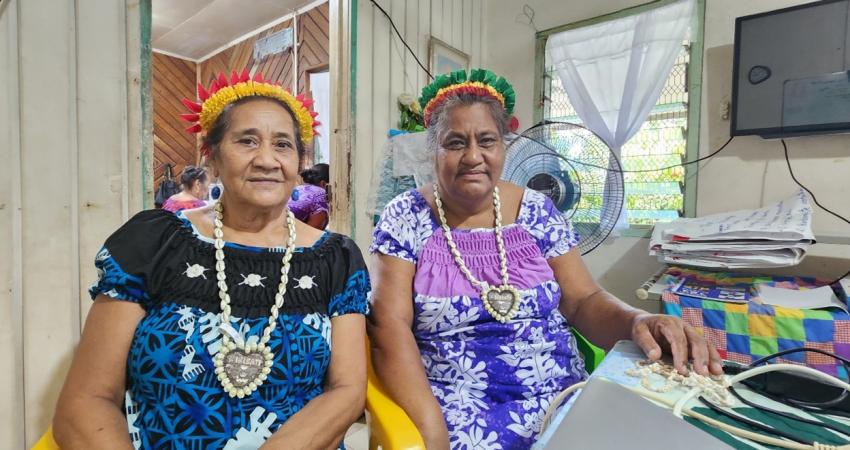
During the peak of the pandemic, Ioanna Taraia found herself stranded in Fiji, where she not only managed to undertake but also successfully complete two vital training programs. This came at a crucial moment, as Pacific communities and families were growing increasingly reliant on the ocean for both sustenance and income
Ioanna Taraia is the first I-Kiribati woman to hold both the Micro-Qualification in Establishing and Operating a Small Seafood Business and the Micro-Qualification in Maintaining Seafood Safety and Quality through the USP PEUMP Project; which has brought her new opportunities and responsibilities.
Ioanna is 65 years old and the Director of the Catholic Women’s League for the Diocese of Tarawa and Nauru, locally known as Teitoiningaina. As such, she actively works with approximately 33,000 Kiribati women, who mostly rely on marine resources for their livelihoods and contribute significantly to government revenue.
Fast forward to almost 4 years later, Ioanna now actively imparts the knowledge gained from these trainings which has positively impacted her community in several ways:
Empowering Women in her Community: Ioanna's commitment extends beyond her personal achievements. She is actively sharing the knowledge and skills she has acquired with the Kiribati Catholic women’s association called Teitoiningaina. This association empowers women who may be unemployed, lack proficiency in English, or have limited access to formal education.
Strengthened Seafood Safety Practices: Ioanna has shared her knowledge and expertise with her community, enabling them to maintain high-quality standards for fish from the ‘hook to table’. Proper handling and storage of fish to ensure its quality, which is essential for good health and marketability.
Business Skills and Resources: She learned about available resources for starting a business and how to access them. Ioanna gained insights into crafting a solid business plan and effective marketing strategies, with a particular emphasis on the impact of social media, such as Facebook, for marketing seafood products.
Economic Empowerment: Through Ioanna's guidance and training, women within the association have found employment and established various businesses, including catering, sewing, handicrafts and such. These initiatives have not only improved the livelihoods of these women; but have also contributed to the economic well-being of the community.
Nutritional Awareness: Women in the association are now more nutritionally aware, ensuring proper nutrition and food safety handling for both customers and their own families. This increased awareness benefits the overall health and well-being of the community.
In summary, Ioanna Nabura's dedication and the skills she gained through her training has had a profound and positive impact on her community in Kiribati. By strengthening businesses practices, enhancing seafood safety practices, promoting economic empowerment, and fostering greater nutritional awareness, Ioanna's efforts have empowered women and improved the overall well-being of the community. Her story is a testament to the transformative potential of education and training in building resilient and prosperous communities in the Pacific region.